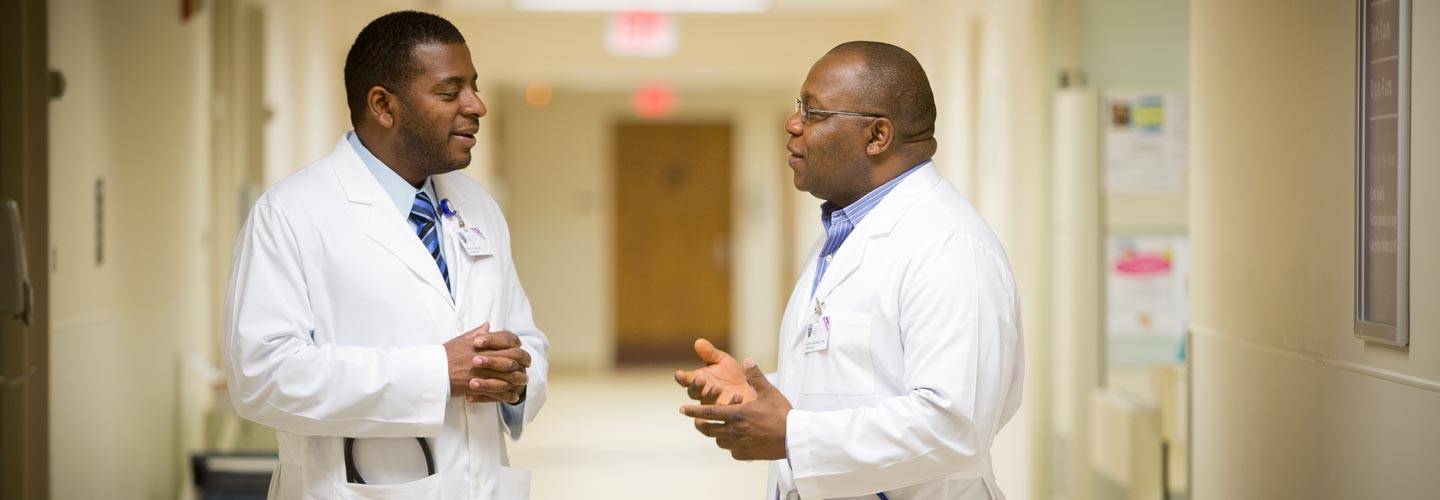
Chest Pain
If you experience chest pain, and your family physician or cardiologist suspects a problem, you’ll be referred to the Cardiac & Vascular Center and Halifax Regional Cardiology for testing.
A cardiac catheterization could be one of the first steps. A tiny flexible catheter is passed through your arteries to your heart. Then a dye is injected through the catheter and is observed using a small dose of X-ray. The procedure helps to check blood flow and blood pressure in the arteries and chambers of your heart. Then a determination is made for the best course of treatment. If a stent and/or balloon is needed, it can now be placed here at Halifax Regional in most circumstances at the time of diagnosis.
Q: What happens after my appointment is scheduled?
A: We will call you to confirm your appointment and to discuss your medications and procedure.
Q: What should I do before I come to the hospital?
A: Do not eat or drink anything after midnight. (Medications prescribed by your doctor may be taken with sips of water.) Make sure you have someone to drive you home. Leave your valuables at home, but bring your eyeglasses or contacts if you will need them to review important information we may discuss with you before and after your procedure.
Q: What happens when I come to the Cath Lab?
A: Enter the Medical Center through the Outpatient entrance and proceed to Registration. After the registration process is complete you will be transported to the pre and post care area by our staff. This is where you will be prepared for the procedure and where you recover afterwards. After you’ve settled in to your room, you’ll be given information about what’s about to happen. If you have any questions at all, don’t hesitate to ask—we want you to be comfortable. After you’ve changed into a hospital gown, an IV will be started to introduce fluids and medications. You may be given medication to help you relax during the procedure, and the groin and/or wrist area will be prepared.
Q: What will happen during the procedure itself?
A: You may be drowsy from the medication and able to answer questions but should not experience pain. A long, soft catheter is inserted through the groin or wrist and guided toward the heart as the doctor observes the catheter’s path on a monitor. A contrast dye will be introduced into your heart through the catheter to improve the clarity of the images. Pictures are captured of your heart from many angles, and you may be asked to cough or hold your breath during the process.
Q: What happens following the procedure?
A: Once the catheter is removed, a small dressing will be placed on the groin or wrist. In cases where the groin is used, you will lie flat for approximately three or four hours. It’s important not to sit up, bend the knees or strain during this time. You may experience slight soreness for a period of time following the procedure. You will be given medication for relief. If you have dizziness, lightheadedness, chest discomfort or nausea, the nurse should be notified. Then, assuming there are no further complications, you will be free to go home.
Q: What happens next?
A: You will be given a follow-up appointment date with your cardiologist before you leave the hospital. The majority of patients will not need further procedures. Patients may improve through medications, better diet, exercise and/or other lifestyle modifications. However, if a more serious condition exists, your doctor will answer your questions and continue to provide care.
Q: If I need a stent, can it be done here?
A: Yes, we can place cardiac stents under the physician’s discretion.
